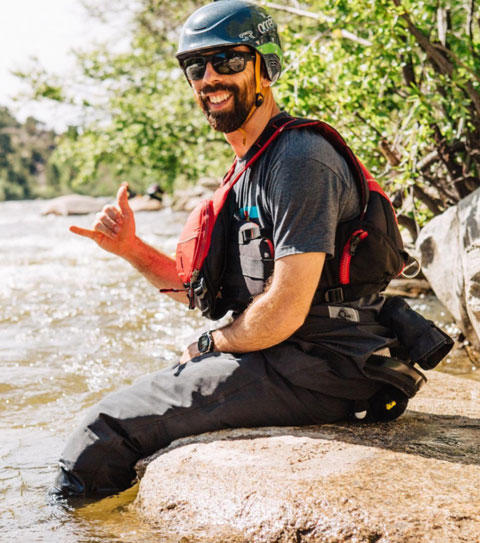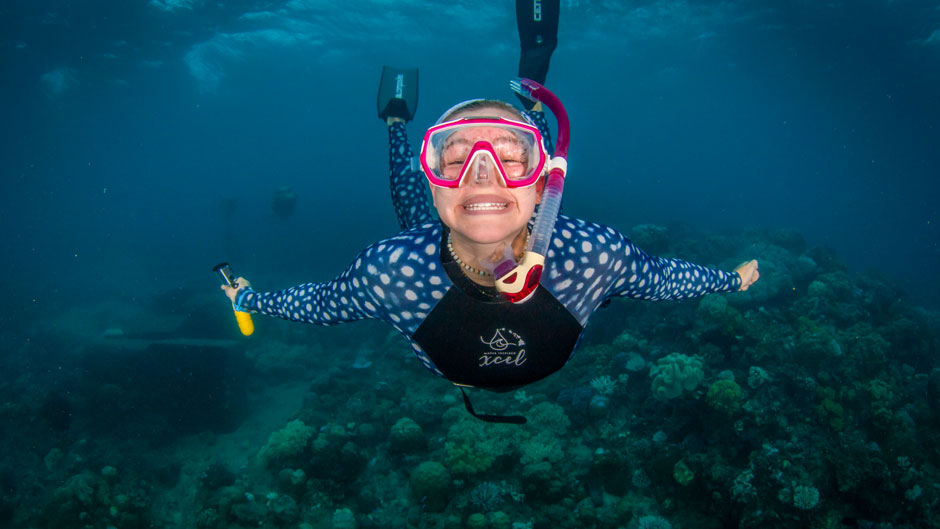While the pandemic has disrupted many aspects of life for people around the country, it has also rekindled a desire for outdoor recreation.
Nationwide, parks are seeing a surge in visitors, campsites are fully booked, and families are replacing flights with road trips via a recreational vehicle. Many indoor public spaces remain off limits, but outdoor ones like parks, golf courses, and beaches are open for business in many communities.
With many student activities still restricted, Trey Knight hopes that outdoor recreation might be a safer alternative on college campuses, too, especially where an abundance of natural resources are within a short distance.
In March, Knight and his family moved from Knoxville, Tennessee, to Miami, where he joined the University of Miami as the assistant director of outdoor adventure at the Patti and Allan Herbert Wellness Center. He arrived with a detailed five-year plan in hand, which laid out the specific ways he would help grow the new outdoor adventures program from the ground up. Though the plan is elaborate, his goal is simple.
“I was like, how do I make sure other students have the same opportunities that I had,” he said, “and how do I make sure that those opportunities allow for the most learning and growth possible.”
Now, nearly seven months into the coronavirus pandemic, Knight stated that the plan has been slightly altered, especially since he hasn’t had much time working on campus since his arrival.
“I got to work for two weeks on campus before moving to work-from-home mode,” he said.
Nonetheless, Knight is still on course to keep the program moving forward, and he has been back on campus since the start of the fall semester.

Before he came to Miami, Knight was the director of outdoor recreation at the University of Tennessee. Growing up, he was involved in several adventure sports like skiing, wakeboarding, white water rafting, diving, kayaking, and surfing, to name a few. His new office behind the climbing wall in Lakeside Village is adorned with gear from almost all his childhood pastimes, exception for skiing. There are surfboards, stand-up paddleboards, kayaks, and climbing equipment, all of which, he said, will be available for rent starting in October.
Knight’s priority is getting the gear and guidance to students via the wellness and recreation portal on the Student Affairs website. He hopes the website will serve as a database for detailed maps and tips about many outdoor activities, from surfing to backcountry camping.
“We’ve had to stretch our initial five-year plan, but we still have this clear path forward,” Knight said.
According to Knight, the outdoor activities that he is making available to students are in adherence with local and national guidelines for preventing coronavirus transmission.
“We are never going to be a high-volume program as far as number of people in a single space,” he said.
Restricting outdoor activities to a small number of people not only helps prevent virus transmission, but according to Knight, it also models leave-no-trace values and sustainable practices for the environment. To him, outdoor adventure means small numbers, open spaces, and limited travel to places of low population density.
According to the U.S. Centers for Disease Control and Prevention, COVID-19 transmission is less likely in outdoor spaces than in indoor spaced. The outdoors decrease the risk of transmission because there is more space for distancing, and there is better air flow.
This semester, Knight is working closely with students, like Sabrina Ufer, to get other students involved in outdoor recreation in safe ways. Ufer is a senior at the Rosenstiel School of Marine and Atmospheric Science and the founder of the university’s freediving club.
“Freediving is basically extreme snorkeling,” she said, “and it’s a less invasive way to explore the ocean [than scuba diving].”
According to Ufer, freediving excursions are typically done in small groups and should never be done alone. The sport does not even require close contact on a boat because one can simply swim out from a beach.
Both Knight and Ufer agree that open-air activities, like freediving or just taking a walk, have health benefits that go far beyond just prevention of COVID-19 transmission.
“Our ancestors lived outdoors,” Ufer said, “and now we spend so much of our lives indoors that when we go outside, it’s like ‘oh yes, I’m returning to my roots.’ ”
Ufer, who studies the atmosphere and air quality as part of her research at the Marine Campus, said that she is also much happier outside—whether she is walking through the trees in her native Oregon or free diving off the shores of Miami.
Along with her freediving peers, Ufer plans to begin hosting guided breathing and meditation exercises sometime in the future.
“There's a lot of strict regulations right now with going off campus," she said. "So, we still wanted to create that sense of community and bring a sense of calm to people during these times.”
Knight is also a proponent of using time outdoors as a relief for stress and anxiety.
“These things that are green and alive,” he said, “our brains just process them differently, and our biology understands that it’s a rejuvenating experience.”

